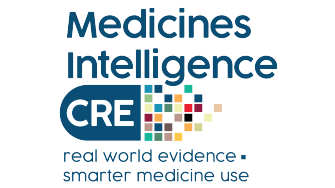
Co-designing a consumer-focused digital health platform to improve adverse drug event (ADE) detection, management and reporting
Project Incubator Program
Project Incubator Program

Medicines have many benefits but can also cause harm; these harms are called adverse drug events (ADEs). ADEs are common and often lead to patient harm. In Australia, we estimate that 1.2 million people experienced an ADE within a six-month period. Currently pharmacovigilance processes require voluntary ADE reports to regulatory authorities. These reports are then investigated to identify new medical safety issues. Despite the need, there is no proactive system in Australia that helps to enable consumers and health professionals to detect and manage ADEs, nor a mechanism for consumers to report ADEs that is easy-to-use, intuitive and engages them. This project aims to co-design a digital health platform to enable consumers and health professionals to actively detect medicine harms, and for consumers to report the harms to the medicine regulatory authority in Australia.
Jun 2022 - Dec 2025
Dr Christopher Thornton - University of South Australia
Dr Andre Andrade - University of South Australia
A/Prof Lisa Kalisch Ellett - University of South Australia
Tracey-Lea Laba - University of South Australia
Prof Nicole Pratt - University of South Australia
Prof Libby Roughead - University of South Australia
Dr Sieta de Vries - University Medical Centre Groningen
Dr Myra Thiessen - Monash University
Dr Oliver Frank - University of Adelaide
Prof Phaik Yeong Cheah - University of Oxford
Prof Kim-Kwang Raymond Choo - University of Texas at San Antonio
Ms Ximena Camacho - UNSW Sydney
1) Can we better detect and manage ADEs in the community to prevent more serious harms such as ADE-related hospital admissions?
2) Can we increase the number and quality of ADE reporting by consumers to the TGA to help accelerate safety signal detection?
We have conducted a pilot study where we developed a platform (as an app and a website) for consumers to report any medicine side effects they experienced, and a systematic review of existing tools to identify ADEs. The proposed project will leverage findings from our pilot project and systematic review.
By proactively detecting and managing ADEs, our digital health platform has significant potential to reduce ADE-related emergency department visits and hospital admissions, thereby reducing pressure on an already overstretched healthcare system. By streamlining the ADE reporting process, our platform has the potential to contribute to more timely detection and verification of potential medicines safety signals.